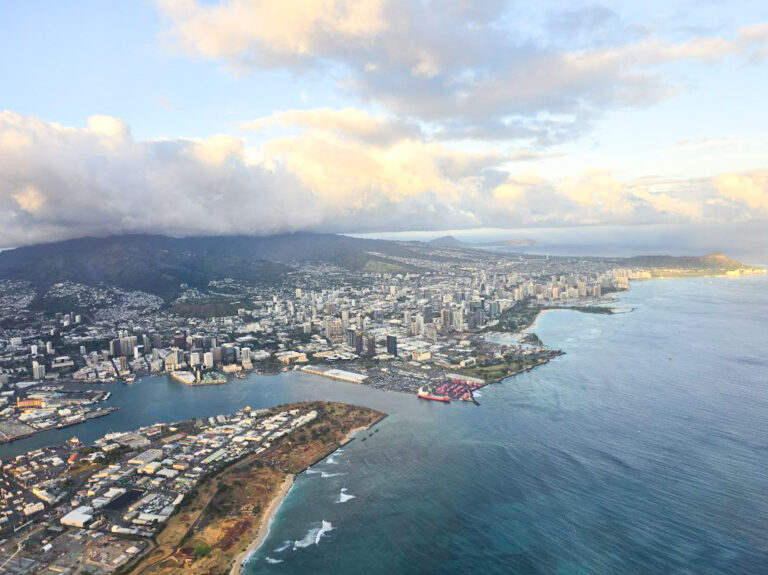Recently, controversy has flared over Hawaii Assembly Bill 2581 and Governor Green’s potential veto. The bill, which seeks to limit the governor’s power to shut off electronic media during an emergency, has raised concerns among First Amendment advocates.
Bill 2581, which the Governor is likely to veto, proposes to remove from Hawaii state law the authority of the Governor and Mayor to “cease the transmission of electronic media” during a state of emergency.
The Big Island Press Club supports the bill, saying it provides a “reasonable and proportionate measure” that reflects the public’s right to know while taking into account emergency management needs.
The Hawaii Broadcasting Corporation said a veto could amount to censorship, which is prohibited by the First Amendment.
In his veto, Governor Green said Hawaii “must remain vigilant against acts of extreme violence and terrorism that may be communicated through social media and other electronic media and may activate mob and destructive devices.”
However, another important aspect to consider is the impact this legislation could have on Hawaii’s vital tourism industry. Because the state relies heavily on Hawaii’s tourism industry, it is essential to understand how emergency powers and media access relate to Hawaii’s visitor experience.
Electronic media serves as a lifeline of information during a crisis. For tourists who are unfamiliar with local emergency response, it is important to receive real-time updates through social media, news sites, and other electronic platforms. Past emergencies in Hawaii, including volcanic eruptions, hurricanes, and tsunamis, highlight the importance of timely and accurate information dissemination.
The recent debate over Hawaii Assembly Bill 2581, which seeks to limit the Governor’s power to shut down electronic media during an emergency, is certainly reminiscent of the 2018 Hawaii missile false alarm that sent everyone, including us, into a panic.
During this crisis, rapid dissemination of information through electronic media was crucial in managing widespread public panic and confusion. It is vital to Hawaii’s tourism industry that visitors feel safe and well-informed, and limited access to media during an emergency could have disastrous consequences.
Tourists rely on timely, accurate, up-to-date information to help them navigate a crisis, whether real or not, and the perception that they may not be informed could alienate future tourists and ultimately impact Hawaii’s economy and reputation as a safe travel destination.
Restricting electronic media during an emergency could leave tourists uninformed, exacerbate panic and put visitors at risk. Tourists rely heavily on digital communication to stay informed about evolving situations and receive instructions.
Tourists may feel uneasy knowing that their access to important information may be cut off during an emergency. This perception may discourage potential tourists from choosing Hawaii as a vacation destination out of fear that they may be left defenseless during a crisis.
Impact on Hawaii’s tourism economy.
Hawaii’s economy is driven almost entirely by tourism, so it could be hurt if tourists choose other destinations that are perceived as safer or have more reliable access to information. Any further declines in tourism to Hawaii would have an impact on local businesses, from hotels and restaurants to tour operators and retailers.
Negative experiences resulting from a lack of information during an emergency could further damage Hawaii’s reputation as a safe and welcoming tourist destination.
Examining how other regions with large tourist populations manage emergency communications can provide valuable insights. For example, a country like Japan is regularly hit by natural disasters, yet has robust systems in place to keep residents and tourists continuously informed. These systems increase the sense of security of visitors and residents and help maintain the country’s appeal as a tourist destination.
Hawaii needs proactive communication solutions.
Hawaii could consider several proactive measures to balance the need for emergency powers with the need to keep tourists informed, including a more transparent communications policy that clearly outlines situations in which media access may be restricted and ensures alternative avenues for disseminating important information to the public, including Hawaii’s tourists.
Additionally, governments should work closely with hotels, resorts, and other key players in the tourism industry to develop strong emergency communications plans to ensure tourists receive the information they need, even when electronic media is limited.
The state must make the most of technology to build a resilient information dissemination infrastructure, including emergency communications apps and systems that can operate independently of traditional media channels.
As Hawaii navigates the complex landscape of emergency powers and media access, it is important to consider the broader impacts on the tourism industry. Ensuring that tourists feel safe and informed during their visit is a public safety issue and essential to Hawaii maintaining its status as a premier travel destination.
HB2581_CD1_
Source link

